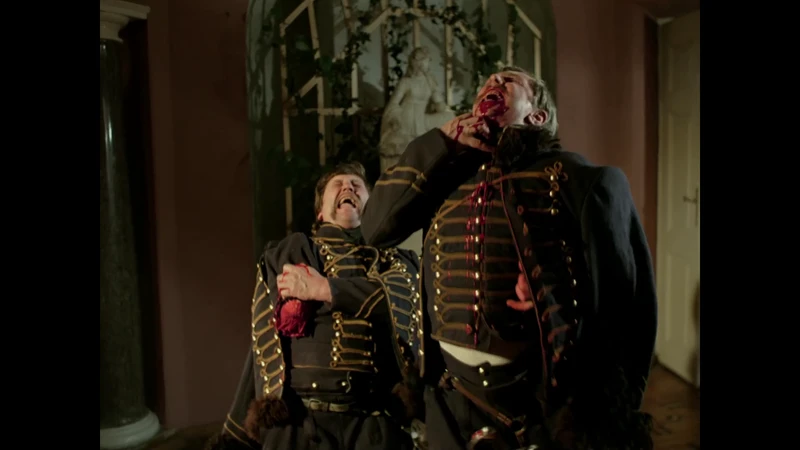Wilczyca AKA She-Wolf (1983)
| director: | Marek Piestrak |
| release-year: | 1983 |
| genres: | horror, werewolf, shocktober |
| countries: | Poland |
| languages: | Polish |
| fests: | SHOCKtober 2024: WOLFtober |
We open in a snowy field where an actual hawk is hanging out on the head of a (hopefully) not-actual eviscerated horse corpse, with some wooden wheels and a man in 1800s dress on a horse… though, honestly, that doesn't tell me if it's the 1800s or just 1980s rural Poland. An unexpectedly nice, jarring, and excited string and horn orchestra accompanies the horse rider as he urgently rides to a small farmhouse.
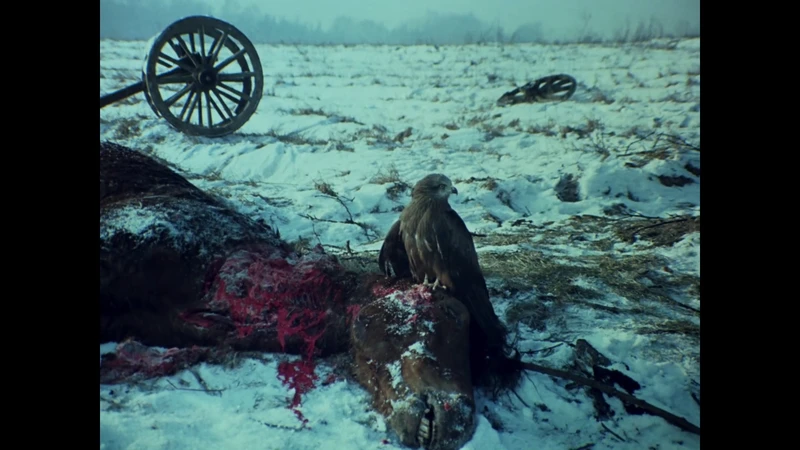
He's coming to check on his sick wife, who is bloodied and bed-ridden from a failed abortion attempt. They don't know who the father is. The man on the horse, introduced as Kacper, and the doctor are acting well, if more for the stage, but the other guy who was there to receive him, Mateusz, who I think is his brother, can't get the cadence of his lines down.
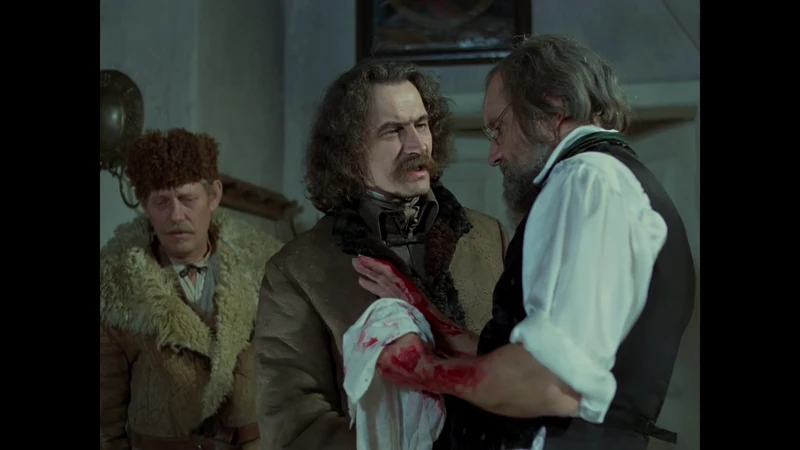
Maryna, the dying woman, is wide-eyed and talking crazy. She burnt their crucifixes and denied the priest. "I'll find you!" she rasps out just as she dies. She's got something against this Kacper guy. She was secretly clutching a wolf's paw, or something like that, to her breast. A wolf howls outside as she dies, and Mateusz insists on burning it. He calls her a witch and tries to stake her through the heart, but Kacper isn't having it. He concedes eventually. They don't know how to unfurl a story through performance, so the characters overexplain things in detail to us instead. A lot of quick backstory ham-fistedly forced in to posthumously declare her an ostracized witch.
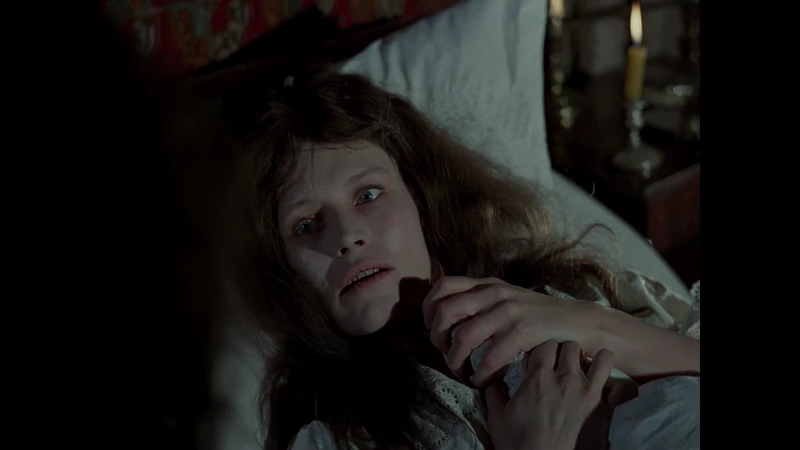
The environment is split between various rural manors in a crisp, snowy winter, with everyone trotting around down tree-lined lanes on work horses, and several farm dogs swirling in the background of every scene. Fires blaze indoors, and the decorations are humble but elegant. I want to go to there.
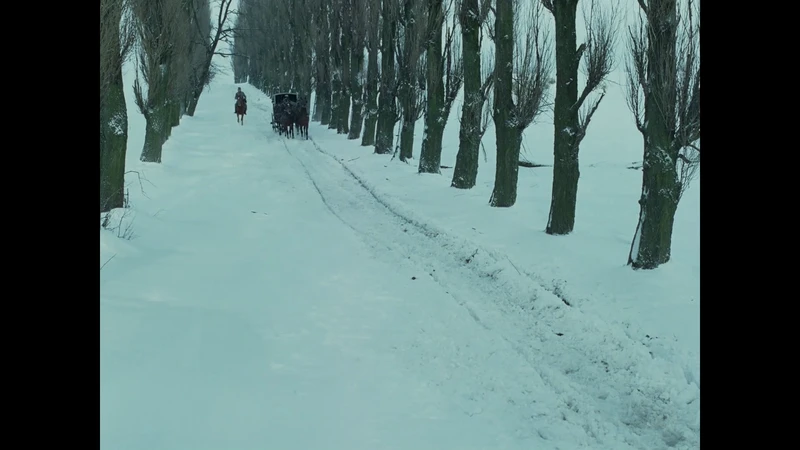
Kacper looks out of the window of his manor and spots a wolf. "A she-wolf," he says confidently and concernedly. He doesn't have time to explain before two gentlemen burst in to yell worriedly about uprisings and Hussars and fleeing to Hungary. I… don't even know what century this takes place in, nor anything about Polish history, so I'm not understanding the implications. One of them, Wiktor, suddenly passes out and they declare that he requires some bloodletting.
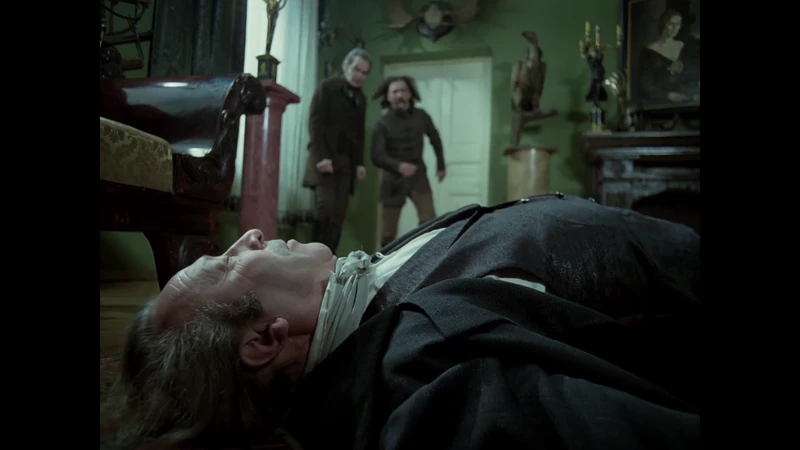
A lady of the manor, Julia, and her servant are getting up to some lesbian shenanigans. She tells her husband, Count Ludwik, that his boring political intentions have driven her to the arms of a woman, and laughs cruelly in his face. She fakes a crying fit to get him to leave.
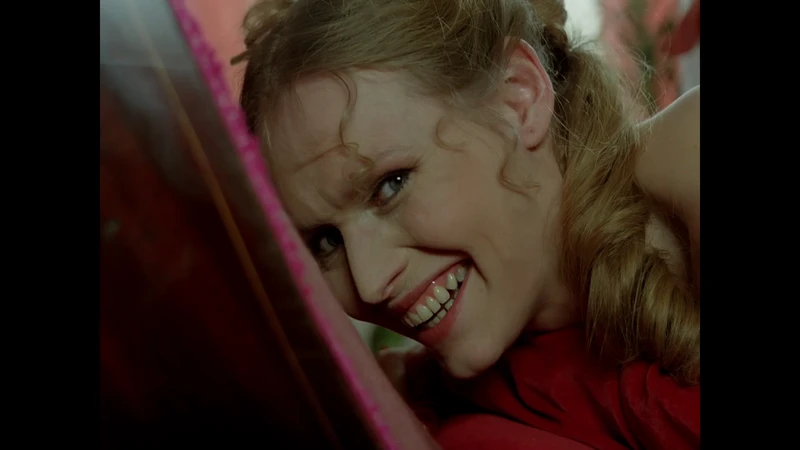
The gentlemen decide to flee. They sent Kacper alone in front as a scout, and they ride some distance behind. The weather worsens, and Kacper's group gets word of Tartars in the vicinity. He paces around pensively in the howling wind and fog. It's not Tartars he finds, but a glowing specter of a woman. They deny their eyes, but the horses do not. The horses settle as Wiktor rides up and declares he has seen a wolf.
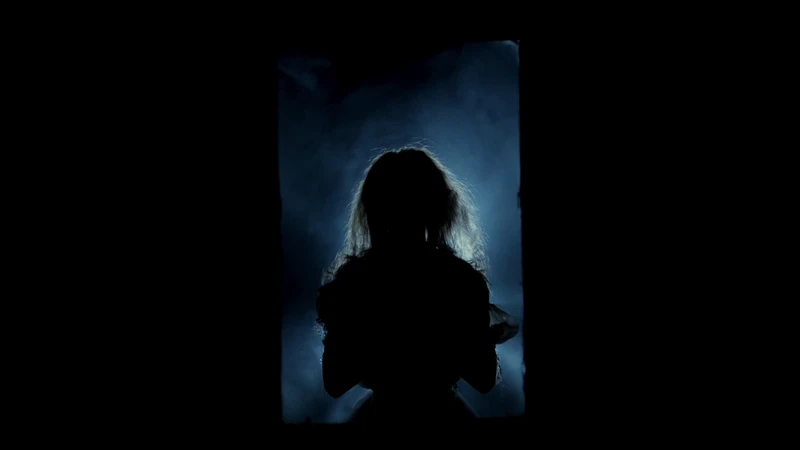
The Count sends Kacper back to the manor to protect his wife and property. I think this is pretty much how we figure out that the Count is in charge, and it's really rather late to be figuring out the hierarchy of gentlemen, but that's ok. Kacper seems to be lowest in gentleman ranking, but they respect his opinion and hug him when he leaves; he's certainly not among the rank of servants, who he orders around.
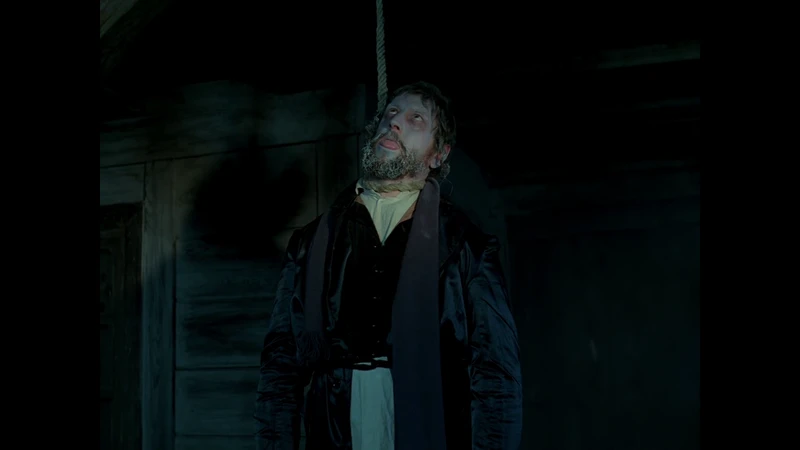
Kacper isn't feeling great, so he cuddles with a cute dog while waiting for the doctor. The doctor arrives that evening, clouds drifting ominously past the full moon. The dog, Figa, is a star. The doctor pours some booze down his throat while he's sleeping, because what did old-timey doctors know about anything. The doctor says he has "mud fever" from "the humidity."
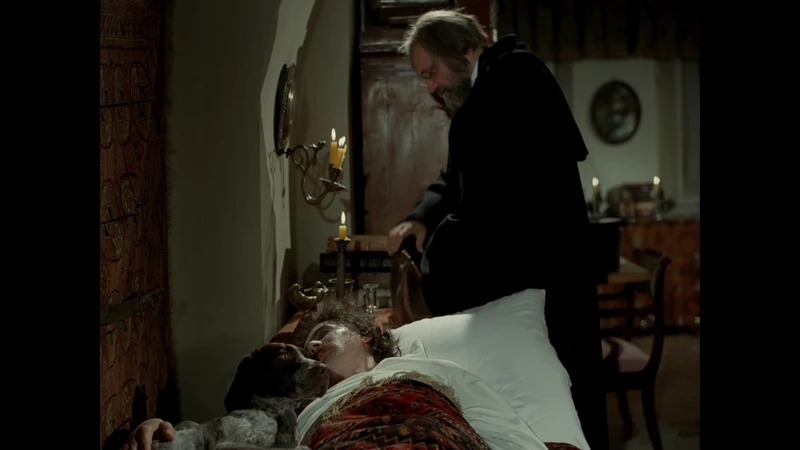
Sadly, the wolf howls through the night, and, in the most tragic scene of the entire WOLFtober, our precious Figa is lost. I don't understand how this scene was filmed, and I fear some animals were harmed in the making of this film.
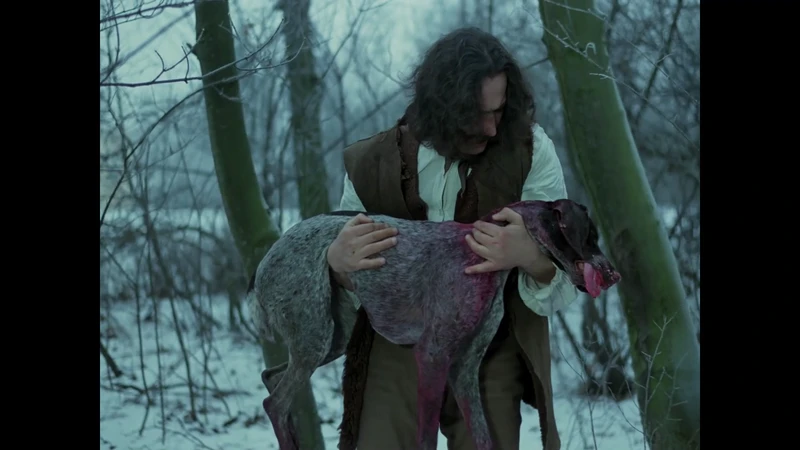
Adorable Nutcracker music plays as we get our first view of the absolutely ludicrous Hussars trotting gayly into the manor. It cuts suddenly to a sepia-toned scene with the same characters in a poorly demarcated flashback, in which the Countess takes the lead Hussar to feed raw meat to some captive wolves. A wolf bites the Hussar because, though he may be fabulous, he is not smart. The Countess licks the blood off of his hand creepily and he tears her clothes off. Flashback now completed, Kacper walks in on them doing much the same thing.
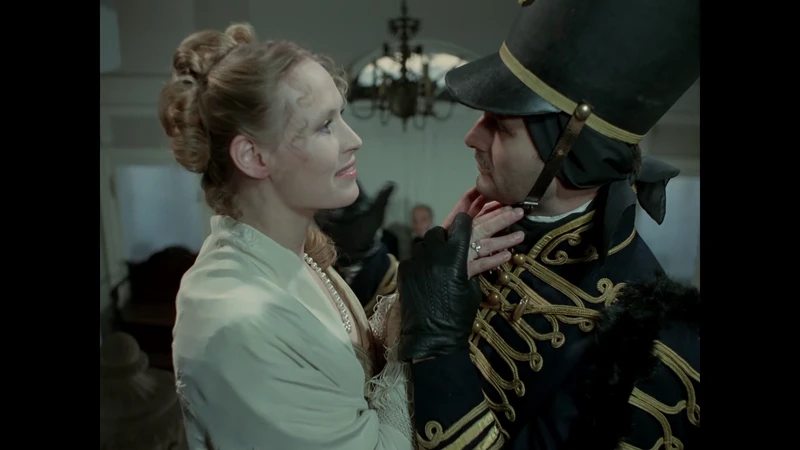
Mateusz comes to visit and tell a dramatic ghost story, which opens with cute farm dogs, as all stories should. The horrifying walking zombie-corpse of Kacper's dead wife came to visit him in the night, and when he awoke from the fright he saw a she-wolf circling the house. Mateusz explains that the war spread to the cemetery where his staked wife's remains once laid, but the ground was torn open and bones scattered far and wide. He insists she now haunts their old house permanently.
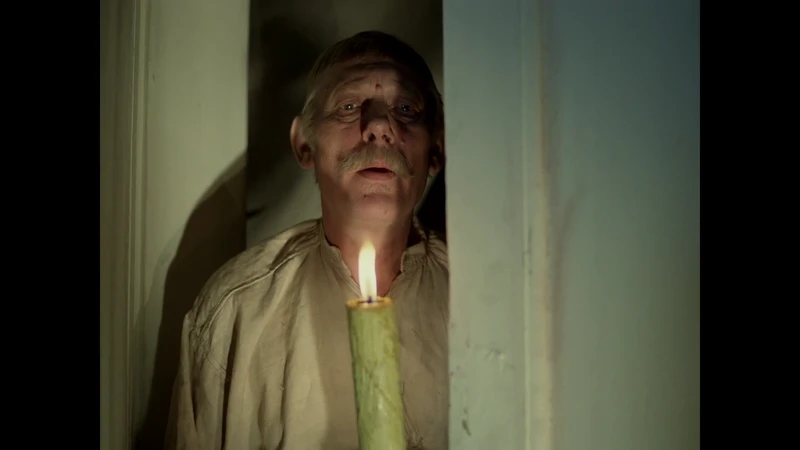
Mateusz shows Kacper a picture of Maryna, but he sees the Countess Julia in the photo instead. Shortly after, the doctor comes by to deliver some foreshadowing. The doctor says he studies science, occultism, and the bible. That's the true holy trinity. Oddly enough, it's the bible that he uses as his source to explain how ghosts possess the living and what they want. "It takes with it seven other spirits," the bible apparently says in Matthew 12:44, which is neat because some cultures mark seven as the number of the werewolf.
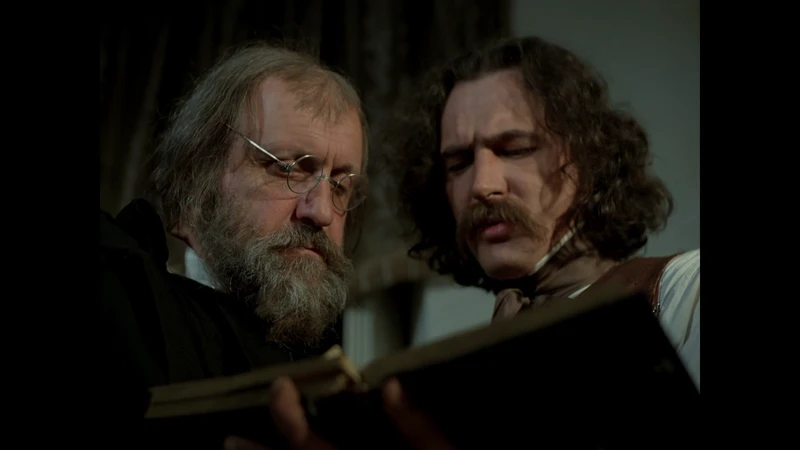
Kacper spends the night oiling his firearms for a wolf hunt, at the recommendation of the groundskeeper. He hears unsettling thumping sounds coming from the walls, and finds paw prints leading up to the attic. With pistol and candle, he ascends, one creaky wooden step at a time, with a wonderful, slow tension. When he blasts a hole through the locked attic door, a haunting woman's laugh fills the air. The Countess's girlfriend is angry with jealousy. She forebodingly warns the Countess that her affair will end badly.
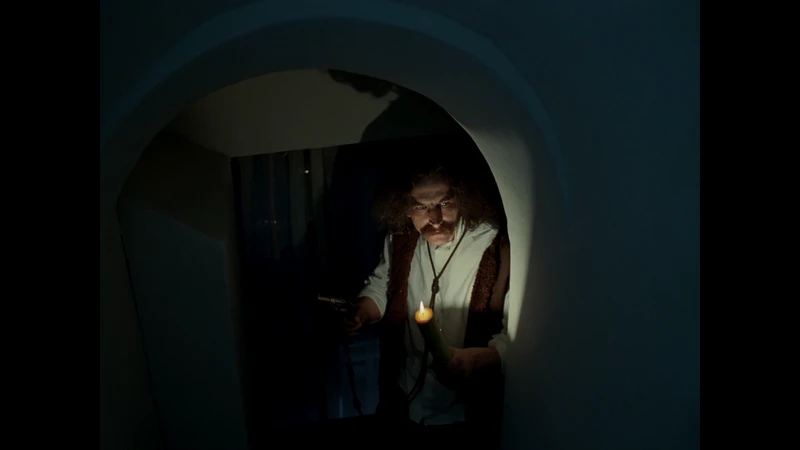
In the morning, Peter and the Wolf woodwinds play Kacper through his wolf hunt. He finds the wolf trotting along nonchalantly, and fires like a madman until he finally wounds it. I don't know how many bullets such a musket can hold, but I don't think it's that many. He tracks the blood trail, which leads him to none other than the Countess, bleeding profusely from her hand and smiling grimly.
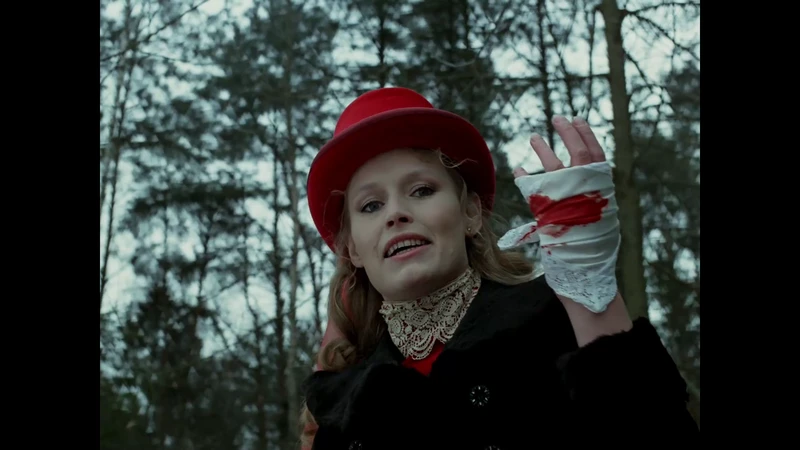
All shaken up, he goes to the doctor and asks him to make a silver bullet dipped in holy water. The doctor chants some satanic versus, and stabs the photo of his dead wife. Back in her chambers, Countess Julia screams and falls to the floor with terrible chest pains. The photograph bleeds. Then he smelts the bullet as promised, in the first movie where it's believable that somebody would actually have a bullet smelting device.
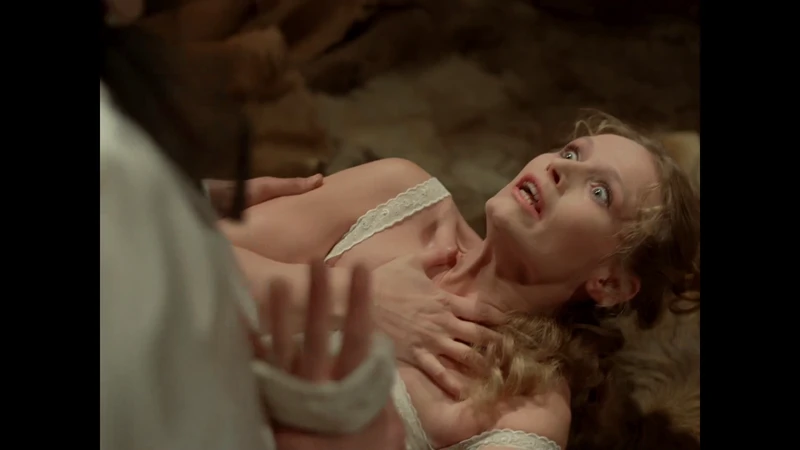
In werewolf film tradition, he blasts Julia's eyeball right out with the silver bullet. A most absurd sword battle follows, in which the limp, floppy, stuffed arms of some Hussars fall off. Although he escapes, the musket round in his spine is probably a nuisance.
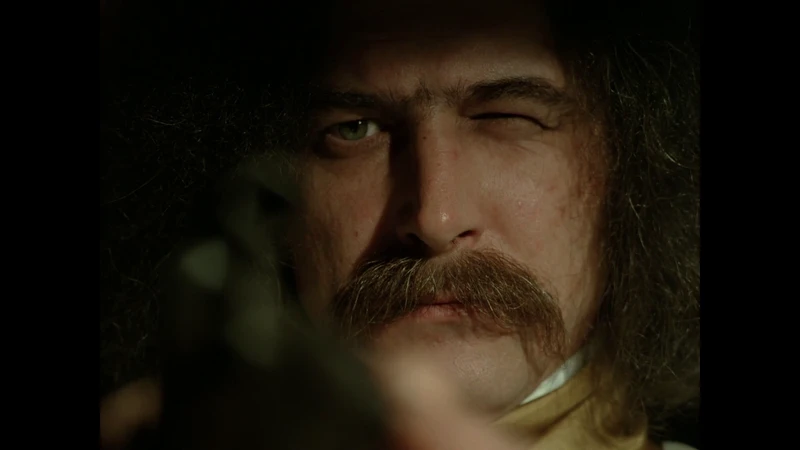
When the Count returns, he demands to have her coffin dug up so he can see her corpse and have her transferred to the family tomb Upon opening it, they find the grisly bones of a large wolf.
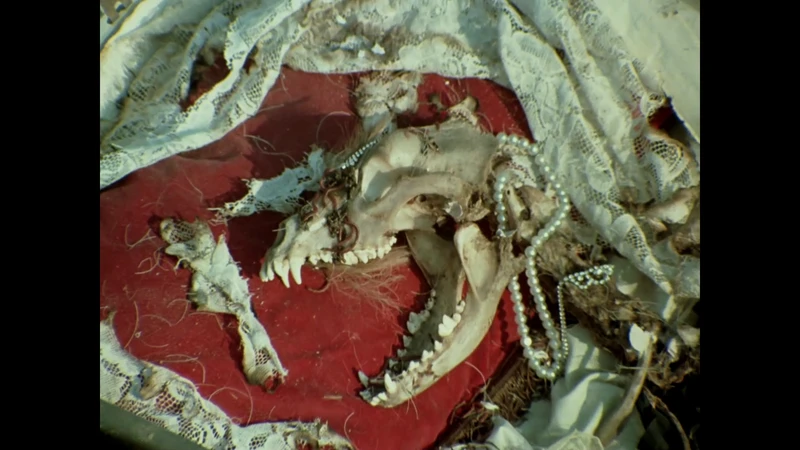
The story is sloppy and sometimes boring, and some of the actors aren't great, but all-in-all this is a much better film than I was expecting. Top-notch Soviet score, beautiful scenery, lovely cinematography, a handful of quite enjoyable performances, and a really nice, moody atmosphere. It's some Dostoevsky meets Shakespeare meets Bram Stoker meets Bergman meets Poe.
